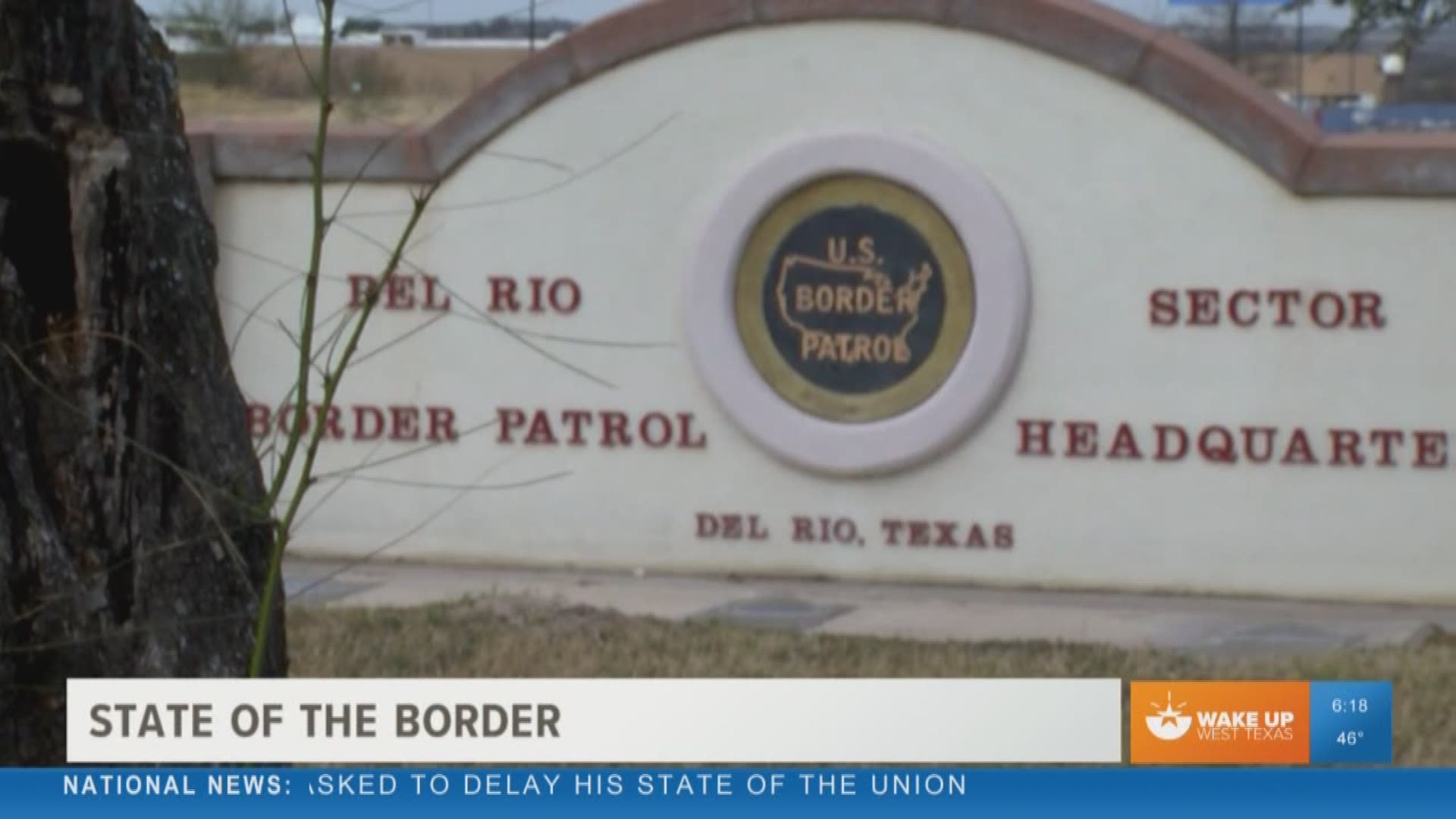DEL RIO, Texas — “In my 21 years in the Border Patrol the border is always dynamic it’s always challenging. The situation might change slightly over time but the challenges remain. We’re at a 300 percent increase in rescues so far this year than this time last year so we’re continuing to do that. For us within the Del Rio sector, our arrests are over 80 percent higher than they were last year so we’re dealing with more volume,” Hudak said.
Most of those who are rescued sustain minor injuries and are given immediate medical attention. But some are not as fortunate. The elements have proven harsh time and time again. But sometimes dangers lie within the group migrants travel with, and those groups are becoming more and more diverse.
“Eighty percent of the folks that we are arresting are what we classify as “coming from countries other than Mexico.” So the detention requirements for the them, the process for which we put them through an immigration preceding to return them to their country is significantly different. It takes a lot more time and a lot more resources,” Hudak said.
Half of that 80 percent is what agents call family units. A classification agents have seen a substantial increase in over the past few months.
“When we deal with a family unit, whether it’s one or two parents with a child, they have special requirements for how we process them, how we detain them, how we transport them. Then add to that the even more challenging group of unaccompanied children. Which that continues to be a challenge for us going into this year as well,” Hudak said.
In addition to that challenge are the laws themselves that change at a much slower pace than the developing issues the agents encounter daily.
“There’s opportunities for those laws to be exploited and that’s a lot of what we see now. So if you have a child with you, you are treated differently in that immigration process so it becomes an incentive to bring a child with you to circumvent some of that process. We do see cases that there are children who are truly not related to that adult that they are bringing with them to exploit that benefit,” Hudak said.
However, one of the statistics that has skyrocketed raises even more concern for Chief Hudak.
“What we’re also seeing that’s probably a more alarming concern for us is assaults against Border Patrol agents. I think everybody has seen what’s happened in San Diego and some other places and I’m happy we have not seen that here. It’s good for our agents here it’s good for the community here but we have seen a marked increase in assaults. We’ve had as many agents assaulted, incidents of assault, in the first quarter of this year as we did in half of last year,” Hudak said.
When it comes to our nation’s border security, Chief Hudak says there needs to be a combination of ways to protect citizens.
“Do fences and barriers stop everything? No, they don’t. But, they allow us to shape that environment where it’s safer for the Border Patrol Agents and it’s safer for the community. It has to be the right combination of infrastructure, technology, and personnel and where we do have the physical barriers now, the fencing, it does aid our agents and it does help make the community safer,” Hudak said.

